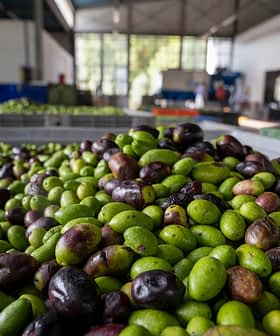Researchers Link Adherence to Med Diet with Improved Outlook for Clinically Depressed
Following the Mediterranean diet was linked with the normal development of an important part of the nervous system in depressed patients.
A study from Spain found that following a Mediterranean diet rich in extra virgin olive oil can have beneficial effects on individuals with depression symptoms. The research showed that a poor diet high in unhealthy fats and sugar is linked to recurrent mood affective disorder symptoms, while adherence to the Mediterranean diet can help alleviate symptoms of depression.
Following a Mediterranean diet rich in extra virgin olive oil has beneficial effects on individuals suffering from symptoms of depression, according to a new study out of Spain.
Investigators at the Institute for Health and Research in Aragon looked at the relationship between following a Mediterranean diet and the consumption of specific foods in primary care patients aged 45 to 75. All the patients had subclinical or major depression with or without other chronic diseases.
A poor-quality diet is an avoidable risk factor for depression, supporting the possibility of using diet as an adjunctive treatment.
The researchers found that a poor diet high in saturated fats, trans fats, sugar-based foods and fast food is related to recurrent mood affective disorder symptoms, resulting in obesity and depression.
See Also:Health NewsHowever, following a Mediterranean diet, comprising fruits, nuts, cereals, fatty fish, small portions of meat, some red wine and extra virgin olive oil, has beneficial effects on the symptoms of depression.
According to the Global Burden of Disease, depression is the leading cause of disability worldwide. It is estimated that by 2030, mood affective disorders will be the main contributor to morbidity.
Depression also has been linked to many chronic diseases prevalent in Western societies. Furthermore, researchers have uncovered a direct link between lifestyle, nutrition and depression.
“There is a direct correlation between diet and depression, a better diet causes less depression and vice versa,” Alejandra Aguilar-Latorre, one of the scientists involved in the study, told Olive Oil Times. “Numerous studies have described the relationship between the quality of the diet and the presence of persistent or recurrent depressive symptoms.”
“Assessing the dietary pattern of patients presenting depressive symptoms and promoting adherence to a healthy diet is important,” she added. “However, depression is a big issue, and we should not forget about its complexities.”
These complexities include biological, psychological and social factors as well. Diet and nutrition alone as a full treatment for depression is inconclusive.
However, adhering to the Mediterranean diet resulted in increased levels of brain-derived neurotrophic factors, a neurotrophin required for normal development of parts of the nervous system, in depressed patients.
Furthermore, extra virgin olive oil is the primary source of fat in the traditional Mediterranean diet and is rich in polyphenols, Omega−3 fatty acids and B vitamins. Meanwhile, nuts contain selenium, along with Omega‑3 fatty acids. Consumption of these micronutrients has long been considered positive effects on depression.
Experimental studies also have established that consuming olive oil regularly provides neuroprotective effects, which influence behavior via the metabolism of serotonin and dopamine neurotransmitters.
This reinforces the use of olive oil as a therapeutic protective substance to treat depression and anxiety, especially in elderly and middle-aged women.
Aguilar-Latorre said these findings are especially important as they come at a time when adherence to the Mediterranean diet in Spain and other Mediterranean countries remains in decline. Consumers are leaning toward a more “Westernized” diet, which is high in red and processed meats, fried food, refined cereals, sugary drinks and processed foods.
These diets also typically lack fresh fruits and vegetables, which further leads to diseases such as diabetes, obesity and increased levels of depression.
“I recommend avoiding the use of supplements and improving the quality of your diet, as a first option [for treating depression],” Aguilar-Latorre said. “A poor-quality diet is an avoidable risk factor for depression, supporting the possibility of using diet as an adjunctive treatment.”
“Any change should be under the advice of an expert nutritionist,” she added. “Our research is from the field of psychology, so we must admit our limitations in terms of nutrient intake.”
“However, depression is a very complex issue, so the relationship between nutrition and depression needs to be looked at further,” Aguilar-Latorre continued.
She said that her research group will continue to investigate the influence of lifestyles on mood affective disorders and their symptoms.
“We are implementing a randomized clinical trial in which we advise people with depression how to change to a healthy lifestyle,” Aguilar-Latorre said. “The results are promising: by changing their lifestyles (sleep routine, sun exposure, physical exercise and diet), their depressive symptoms are reduced.”
“These results highlight the importance of implementing cost-effective lifestyles medication programs in primary healthcare centers,” she concluded.
Share this article









